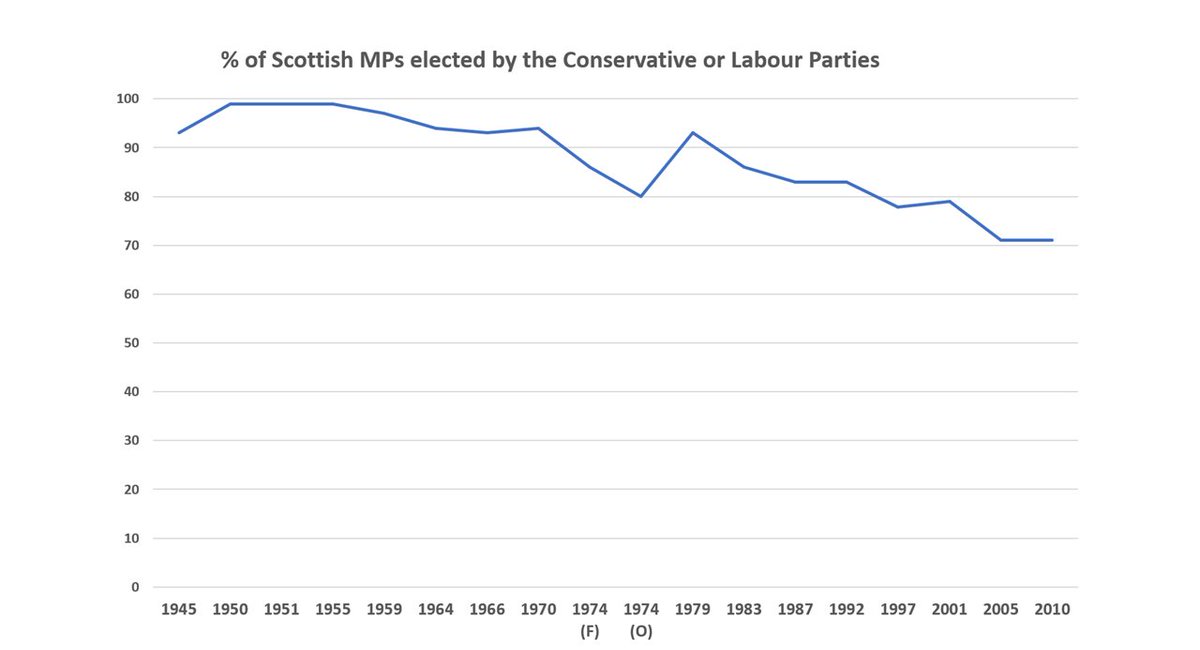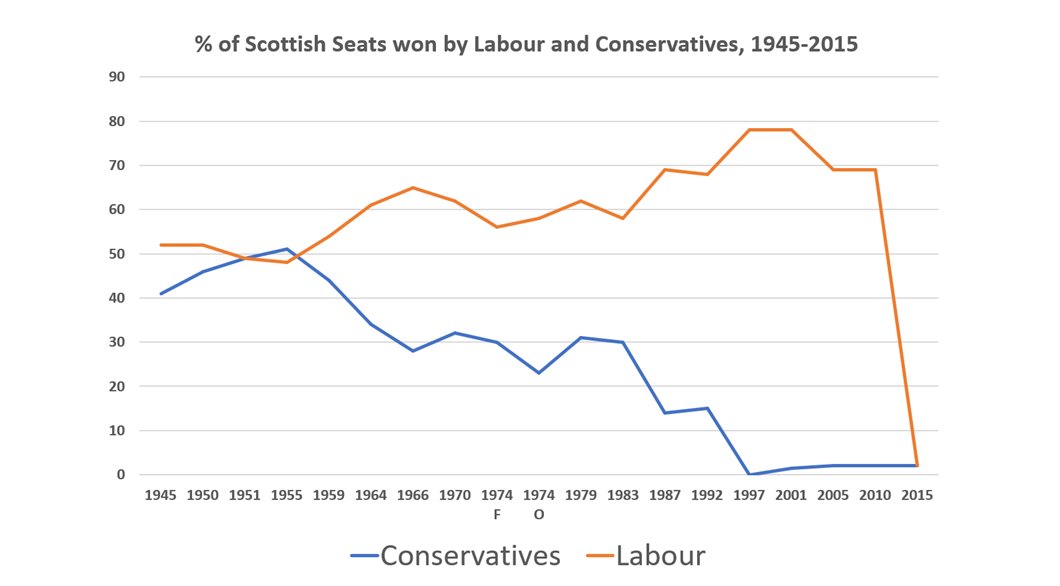One of the biggest dangers to the Union today is the Westminster model at its core: a "winner-takes-all" contest between two overwhelmingly English parties, propped up by an archaic electoral system. If we want to rebuild a Union of consent, we should start here. [THREAD]
2. Britain& #39;s "winner-takes-all" system assumes two broad parties that alternate in govt. Until 2015, Scotland mostly fitted that model. The "Big Two" usually won >80% of MPs, & in 11 out of 18 elections from 1945-2010, the biggest party at Westminster won the most Scottish seats.
3. Scotland had a visible presence, not just in the governing parties at Westminster, but in Cabinet. Scotland supplied Prime Ministers, Chancellors, Foreign & Defence Secretaries, including major figures like Gordon Brown, Robin Cook, Malcolm Rifkind, Donald Dewar and John Smith
4. Yet "British" and Scottish elections were slowly diverging. When the Scottish Tories were wiped out in 1997, the immediate beneficiary was the other Westminster party: Labour. But when Lab fell in 2015, the connecting link between Scottish elections & British cabinets snapped.
5. Since 2015, neither the Govt nor the main Opposition party at Westminster has won more than a handful of seats in Scotland. In consequence, the UK is now governed largely by English politicians, competing for English votes. That is not a stable basis for a Union of consent.
6. Scotland retains, of course, a full quota of MPs. But the Westminster model concentrates power in the hands of govt. MPs are increasingly shut out of decision-making & treated merely as an electoral college for the executive. That offers little role for non-governing parties.
7. Ironically, the decline of the Westminster parties in Scotland has been exaggerated by First Past the Post. Unionist parties won more than 53% of the Scottish vote in 2019, but returned less than a fifth of Scotland& #39;s MPs. 1 in 4 Scots voted Conservative. 1 in 5 voted Labour.
8. In 2015 First Past the Post gave the SNP 95% of Scotland& #39;s MPs on <50% of the vote. It wiped out the Unionist parties a year after they& #39;d won a referendum. In 2019 the SNP won 81% of MPs on 45% of the vote. This isn& #39;t good for democracy, & it& #39;s certainly not good for the Union
9. Under a proportional system (on 2019 votes), Scotland would currently be represented at Westminster by 26 SNP MPs, 15 Tories, 12 Lab & 5 Lib Dems. MPs for Scottish seats would be more likely to hold positions in government, while all MPs would have more influence in Parliament
10. So long as Westminster concentrates all power in the Executive, it will offer little to voters who don& #39;t back one of the Big Two. So long as its electoral system locks out Scottish Unionists, the UK govt will look ever more like an English activity, conducted by English MPs.
11. If Johnson truly wants to rebuild consent for the Union - rather than simply denying permission to leave it - he needs to stop hoarding power in an Executive in which Scotland is barely represented. And he needs to reconsider an electoral system that& #39;s pulling the Union apart

 Read on Twitter
Read on Twitter




